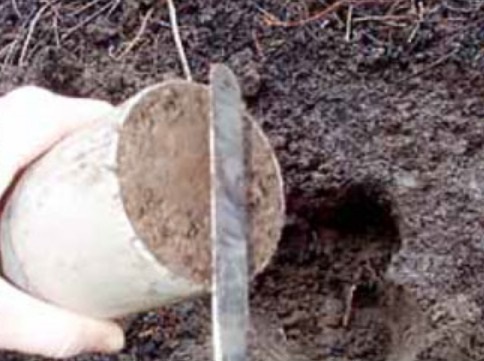
Bulk Density Test
The Bulk Density Test determines the mass of soil per unit volume, including the air spaces between particles. It is a fundamental property that affects soil strength, compaction, porosity, and load-bearing capacity. Measured in the laboratory or field using core cutters or sand replacement methods as per ASTM D7263 or BS 1377-2, bulk density influences many geotechnical and agricultural decisions. In construction, it is used to verify whether soil compaction meets design requirements, impacting the stability of structures and pavements. High bulk density may indicate compaction and reduced permeability, while low values may suggest weak or loose soils requiring improvement. It is also a key factor in calculating overburden pressure and designing foundations.
Advantages of Bulk Density Test:
- Indicates compaction quality and soil strength.
- Supports foundation and pavement design.
- Helps analyze soil suitability for building.
- Easy to do in field or laboratory circumstances.
- Necessary for volume-weight calculations.
- Effective in detecting problematic soil layers.
- Linked to porosity and transport of water in soil.







 US 6937
US 6937  GB 6754
GB 6754  CA 6159
CA 6159  AU 5722
AU 5722  IE 4692
IE 4692  NZ 1883
NZ 1883  BR 922
BR 922  SG 545
SG 545 

